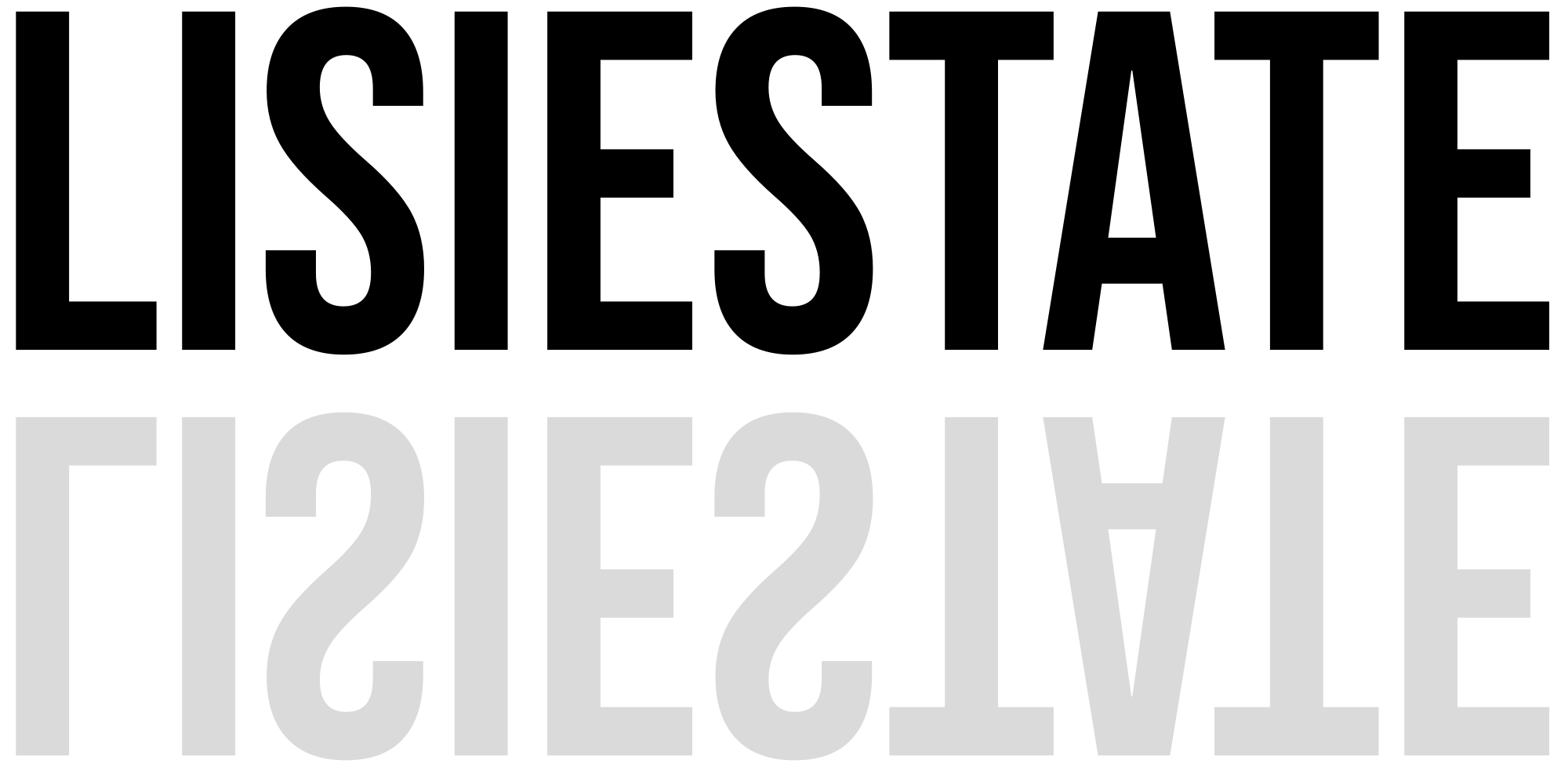Invest In Georgia
Benefits of investing in Georgia


Why Tbilisi Real Estate is a Smart Long-Term Investment in 2025
Tbilisi, the capital of Georgia, has rapidly evolved into one of Europe’s most attractive real estate markets for international investors. With its dynamic rental market, rising property values, and investor-friendly regulations, Tbilisi offers powerful long-term returns — both through steady rental income and significant capital appreciation.
Whether you’re a buy-to-let investor, an expat seeking passive income, or someone building generational wealth, here’s why investing in Tbilisi real estate in 2025 makes exceptional sense.
1. Strong Long-Term Rental Demand
While much of the early hype around Tbilisi real estate centered on short-term rentals, the long-term rental market is now booming — especially among locals, students, digital nomads, and expats. Monthly rental yields remain competitive, with stable, year-round tenants and minimal vacancy risk.
📍 Example: A modern 2-bedroom apartment in Saburtalo rents long-term for $600–$900/month, depending on furnishing and amenities. With purchase prices around $90,000–$120,000, the gross rental yield often exceeds 7–9% annually.
2. Reliable Passive Income With Less Management
Long-term rentals in Tbilisi require significantly less time and effort to manage than short-term (Airbnb-style) rentals. No need to coordinate constant check-ins, cleanings, or guest communication — ideal for foreign investors or those managing properties remotely.
🔑 Tip: Pairing with a local property manager ensures stress-free income while you’re abroad.
3. Short-Term Rentals Still Offer High Returns
For investors interested in short-term rentals, Tbilisi remains a top Airbnb market in the region, especially in central neighborhoods like Old Tbilisi, Mtatsminda, and Vera. Tourists, business travelers, and remote workers keep demand high — particularly in high season (April–October).
🏡 Example: A cozy studio in the heart of Old Town can earn $1,000+ per month during peak tourist months. Some investors operate seasonally — switching to long-term tenants in winter and short-term in summer for maximum returns.
4. Fast-Growing Property Values
Beyond rental income, Tbilisi real estate is steadily appreciating in value, offering excellent potential for capital growth. Over the past five years, average property prices have increased by 25–40% in popular areas like Vake and Saburtalo.
📈 Example: A 1-bedroom apartment purchased for $75,000 in 2019 in Vera is now worth over $110,000 in 2025 — a 46% increase in market value, excluding rental income.
With rising construction costs, increased international interest, and limited prime land, prices are expected to continue rising steadily, especially in sought-after neighborhoods and near metro stations.
5. Emerging Areas Offer Even Greater Appreciation
While central districts are popular, investors are turning to emerging neighborhoods like Gldani, Didi Dighomi, and Ortachala. These areas are undergoing infrastructure upgrades, improved public transport access, and urban renewal projects — creating affordable entry points with high growth potential.
🛠 Investor Insight: Buying early in underdeveloped areas has resulted in 60–80% appreciation for some buyers over the past 3–5 years.
6. Foreigners Can Fully Own Property in Georgia
There are no restrictions for foreigners owning residential property in Tbilisi — making the process transparent and secure. Property registration is fast (1–2 business days), and you’ll own the freehold title under your name.
📝 Bonus: Legal fees and property taxes are significantly lower than in the EU or North America.
7. Residency Opportunities for Property Buyers
Foreign investors who purchase property worth over $100,000 USD are eligible for a renewable Georgian residence permit. This benefit adds value for those considering relocation, extended stays, or future business in the region.
8. Diversify Your Investment Portfolio
Tbilisi offers a wide range of investment options to match different strategies:
Long-term rental apartments in residential hubs (Saburtalo, Vake)
Renovated old-town properties for mid- or short-term rentals
New developments near universities or tech parks for student housing
Buy-and-hold investments in fast-developing outskirts
Whether you’re aiming for steady monthly cash flow or long-term appreciation, Tbilisi’s market allows you to diversify without leaving the city.
Final Thoughts: Stability, Growth, and Flexibility
In 2025, Tbilisi offers a rare mix of high rental income potential, low acquisition costs, and consistent property appreciation — all in a market that’s still accessible to international buyers.
While short-term rentals are profitable, the real strength lies in the city’s growing long-term tenant base and the steady increase in property values year over year. Whether you’re investing for passive income or building long-term equity, Tbilisi real estate offers one of the best value-for-money opportunities in Europe.
Ready to Start Investing in Tbilisi?
Let us help you find the right property, handle legalities, and manage your rental. Get in touch for expert advice, exclusive listings, and full-service support — from purchase to profit.
10 Things to Know Before Buying Property in Georgia (The Country)
Thinking about buying property in Georgia? Whether you’re looking for a smart real estate investment, a holiday home in Tbilisi, or a base for remote work, Georgia offers attractive opportunities — but there are key things you need to know before making a purchase.
Here are the 10 most important things to keep in mind before buying real estate in Georgia 🇬🇪:

1. Foreigners Can Own Property Without Restrictions
Georgia is one of the few countries where foreigners can fully own residential property without requiring residency or citizenship. You can register it under your name with full ownership rights. The only exception? Agricultural land, which is restricted for non-citizens.
2. Property Prices Are Still Affordable
Compared to Western Europe, real estate in Georgia is still very affordable. In Tbilisi, prices range from $900–$1,500 per square meter in popular areas like Saburtalo or Vake — significantly lower than similar urban centers in Europe or the U.S.
3. The Market Offers Strong Rental Yields
Georgia offers some of the highest rental returns in Europe, especially in Tbilisi and Batumi. Long-term rental yields typically range from 7%–10%, while short-term vacation rentals (e.g. Airbnb) can generate even more in high-demand seasons.
4. The Buying Process is Simple and Fast
Property transactions in Georgia are straightforward and secure. The entire buying process can take as little as 1–2 business days, and registration is done through the National Agency of Public Registry. Most deals are done in cash or via international transfer.
5. You’ll Need a Trusted Lawyer or Agency
Even though the system is transparent, it’s highly recommended to work with a licensed local lawyer or real estate agency. They’ll help with contract review, ownership verification, and navigating the small but important legal details.
6. There Are No Annual Property Taxes for Most Residential Homes
In most cases, there is no annual property tax on residential real estate in Georgia unless you rent it out and generate a certain level of income. This makes holding property long-term very cost-effective.
7. You Can Obtain Residency Through Property Investment
If you purchase property worth more than $100,000 USD, you can apply for a 1-year renewable residence permit. This is ideal for investors who want to stay in Georgia long-term or explore residency options in the future.
8. Check the Legal Status of the Property
Before you buy, always verify:
Ownership history
Legal status (is it fully registered?)
No debts, mortgages, or encumbrances These details are easy to access via Georgia’s public land registry — but your lawyer can handle this for you.
9. Not All Properties Are Equal — Location Matters
Different areas offer different returns:
Tbilisi (Vake, Saburtalo) – Strong long-term rental markets
Batumi – Best for short-term Airbnb-style rentals
Kutaisi – Emerging but cheaper
Old Tbilisi / Mtatsminda – Tourist-heavy, excellent for daily rentals
Choose based on your goal: income vs. capital appreciation.
10. Real Estate in Georgia is a Long-Term Growth Play
Property prices in Georgia have been steadily increasing over the past decade, with consistent demand from locals, expats, and investors. Buying now means getting in early while prices are still low and before the market fully matures.
Final Thoughts
Buying property in Georgia is a straightforward, accessible, and potentially lucrative move — whether you’re planning to invest, relocate, or simply diversify your real estate portfolio. Just make sure you’re well-informed, legally protected, and clear on your investment strategy.
Need Help Buying Property in Georgia?
We offer expert guidance, legal assistance, and exclusive listings. Contact us for a free consultation and take your first step toward owning real estate in one of Europe’s fastest-growing markets.
Why Georgia is a Tax Haven for Real Estate Investors and Entrepreneurs
Georgia (the country, not the U.S. state) has quickly become one of the world’s top destinations for real estate investors, digital nomads, and entrepreneurs seeking smart tax optimization strategies. Nestled at the crossroads of Europe and Asia, Georgia offers not just stunning landscapes and rich culture—but also a business-friendly climate backed by some of the most attractive tax policies on the planet.
Whether you’re looking to launch a business, grow your international portfolio, or simply minimize your global tax burden, Georgia provides the perfect environment to thrive. Here’s a deep dive into why investing in real estate and doing business in Georgia could be a truly game-changing decision.

1. Favorable Tax Regime for Businesses
Georgia has one of the most liberal tax systems in the region:
Corporate Income Tax (CIT): Georgia uses an Estonian-style tax system where corporate income is not taxed until it is distributed as dividends. This means you can reinvest profits tax-free.
Standard CIT Rate: 15% (only on distributed profits)
No Capital Gains Tax on the sale of shares or real estate (under certain conditions).
No Wealth Tax or Inheritance Tax.
For entrepreneurs, especially digital nomads or investors running international businesses, this means you can legally grow your capital within Georgia without immediate tax obligations.
2. Real Estate Taxation in Georgia
Investing in Georgian real estate comes with a set of highly advantageous tax treatments:
No Property Tax for individuals owning property unless the income from it exceeds 40,000 GEL (~$15,000) annually.
Rental Income Tax: Flat 5% on gross income from residential rentals (with optional VAT registration for short-term rentals).
No VAT for long-term residential leases.
Capital Gains from Real Estate Sales: Tax-free if the property is held for more than two years before selling.
3. Tax Benefits and Incentives
Georgia offers several tax incentives for both local and foreign investors:
Virtual Zone Status: IT companies can apply for “Virtual Zone” status, making them exempt from VAT and corporate income tax on foreign-sourced income.
Free Industrial Zones (FIZs): Businesses in FIZs pay 0% corporate tax, dividend tax, VAT, property tax, and import/export taxes.
Special Trade Agreements with the EU, China, and CIS countries make Georgia a perfect gateway for import/export businesses.
4. Tax Residency and Becoming a Georgian Taxpayer
Becoming a tax resident in Georgia is relatively simple:
Stay in Georgia for 183 days or more in a 12-month period.
Alternatively, apply for High Net Worth Individual (HNWI) status with a minimum annual income of 200,000 GEL (
$75,000) and total assets of 3 million GEL ($1.1M).
Benefits include:
Access to Georgia’s tax system (including non-double taxation treaties)
Banking privileges and easier business registration
Flat 1% Tax Option: Individuals providing services abroad (i.e., freelancers, consultants, digital nomads) can register as Individual Entrepreneurs and qualify for Georgia’s Small Business Status, which allows them to pay only 1% tax on turnover up to 500,000 GEL (~$185,000).
5. Tax Optimization Strategies for Foreigners
Smart investors use Georgia as a hub for international tax optimization:
Use a Georgian LLC to manage international real estate holdings and reinvest tax-free profits.
Register a Holding Company to hold assets globally; with no dividend withholding tax in Georgia, this creates a clean structure for profit distribution.
Dual Tax Treaties with 57 countries help avoid double taxation and open doors for tax residency arbitrage.
Foreign-Sourced Income: Income earned from outside Georgia by tax residents is not subject to Georgian tax unless remitted or used locally, which creates even more planning opportunities.
6. Cryptocurrency Taxation
Georgia is extremely friendly toward crypto investors:
No personal income tax on crypto capital gains
Mining income is taxed as business income, but with Virtual Zone or FIZ status, taxes can be reduced to nearly zero.
Crypto is not subject to VAT
This makes Georgia a hotspot for blockchain startups, crypto funds, and miners.
7. Why Digital Nomads Love Georgia
Georgia has become a favorite destination for digital nomads, and for good reason:
Visa-free or e-Visa access for citizens of over 90 countries
Low cost of living, high-quality internet, and strong infrastructure
The Remotely from Georgia Program allows freelancers and remote workers to live and work in Georgia for up to one year with a simple online application.
1% tax for foreign-sourced income and minimal bureaucracy makes it an ideal base for location-independent professionals.
8. Conclusion: Georgia as a Smart Investment Base
With its low taxes, simplified regulations, and open economy, Georgia provides one of the most investor-friendly environments in the world. Whether you’re a digital entrepreneur, real estate investor, or crypto enthusiast, the Georgian tax system offers tools to legally minimize your global tax burden while maximizing profitability.
Invest smart. Think Georgia.
How to Open a Bank Account in Georgia as a Foreigner: A Strategic Offshore Overview
Georgia has rapidly become one of the most attractive jurisdictions for foreign individuals and international businesses looking to open bank accounts outside high-tax, high-regulation countries. Strategically located between Europe and Asia, Georgia combines stable financial institutions, liberal banking laws, and strong financial privacy — making it a top destination for those seeking to establish a secure offshore banking presence.
This guide gives you a full overview of Georgia’s banking ecosystem, what you’ll need to open a bank account, and which financial institutions are best suited to your objectives — whether you’re focused on wealth preservation, cross-border transactions, or building international corporate structures.

Why Choose Georgia for Offshore Banking?
Stable and independent financial system
No capital controls; free movement of funds in and out
Multi-currency accounts available (GEL, USD, EUR, GBP)
English-speaking banking staff in most major institutions
Supportive legal framework for offshore companies and international investments
Physical safe deposit boxes available in most major banks for confidential storage of valuable items or documents
Options for both retail and private offshore banking solutions
Documents Required to Open a Bank Account
Opening a bank account in Georgia as a non-resident is straightforward and typically completed in less than an hour. Required documents:
Valid passport
Georgian phone number
Local address (can be temporary or hotel)
TIN (Georgian tax number, optional but useful for long-term banking)
In some cases, source of funds or basic KYC questionnaire
Banks Operating in Georgia – Full Overview
1. Bank of Georgia (BOG)
One of the two largest banks in the country
Excellent digital banking tools and English-speaking service
Ideal for offshore corporate accounts, real estate transactions, and personal wealth banking
Strong SWIFT infrastructure for international transfers
Offers physical safe deposit boxes in most branches
2. TBC Bank
The other market leader in Georgia
Highly advanced online and mobile banking platforms
Excellent for freelancers, international entrepreneurs, and corporate clients
Suitable for high-net-worth individuals seeking private banking services
Competitive currency exchange and cross-border support
3. Liberty Bank
Primarily retail-focused with widespread ATM access
Not recommended for offshore or international business clients
Limited in terms of digital infrastructure and English support
4. Credo Bank
Focused on microfinance and SME support
Good for small local businesses but not suitable for offshore structures
Limited international transfer options
5. Terabank
Boutique bank with increasing popularity among entrepreneurs and small investors
Offers business accounts and loans, particularly for startups
Growing infrastructure for cross-border and online banking
Some branches offer physical safekeeping facilities
6. Basisbank
Owned by Hualing Group (Chinese investors)
Strong focus on logistics, manufacturing, and trade finance
Useful for offshore companies dealing with Asian markets
Corporate banking options available with stable compliance standards
7. ProCredit Bank Georgia
German-owned, conservative banking model with a focus on transparency
Preferred by EU clients and companies requiring higher compliance standards
Excellent for clean offshore holding structures and euro-based accounts
Offers personal and business account packages with long-term stability
8. FINCA Bank
Microfinance institution with local and NGO focus
Not recommended for foreign investors or offshore clients
Limited international capabilities
9. Ziraat Bank Georgia
Turkish-backed institution
Useful for companies engaged in trade between Georgia, Turkey, and the CIS region
Limited digital interface and minimal English support
10. VTB Bank Georgia
Previously a top-tier bank, now restricted due to international sanctions
Not suitable for new clients or offshore usage
11. Cartu Bank
Privately owned and discreet, sometimes used for specialized private accounts
Limited services but preferred by clients seeking banking privacy
Not focused on retail or digital innovation
12. Silk Road Bank
Smaller institution with stable local presence
Suitable for basic retail accounts and local transactions
Some business services available but not tailored to foreign clients
Key Benefits of Holding a Bank Account in Georgia
Multi-currency management for international lifestyle or business
Easy pairing with a Georgian LLC or offshore structure
No exchange controls or government interference in capital movement
Access to safe deposit boxes for secure physical storage of documents, precious metals, or sensitive data
Strong banking privacy not tied to global financial disclosure frameworks
Stable and growing financial sector with foreign ownership allowed
Offshore Use Cases: Who Should Bank in Georgia?
Entrepreneurs operating international businesses
Investors managing global real estate portfolios
Digital nomads and consultants seeking low-tax jurisdictions
High-net-worth individuals protecting assets and seeking safe offshore storage
Crypto investors utilizing Georgia’s tolerant financial environment
Businesses looking for banking diversification outside the EU and U.S.
Conclusion
Georgia offers a unique and highly functional environment for those seeking to diversify their financial footprint and open secure, private, and internationally accessible bank accounts. Whether your goal is to establish an offshore corporate entity, protect your wealth, or simply operate with fewer restrictions, Georgian banks provide flexible, professional, and compliant solutions tailored for today’s globally minded individual.
If you are exploring your next offshore banking location, Georgia deserves a top spot on your list.

